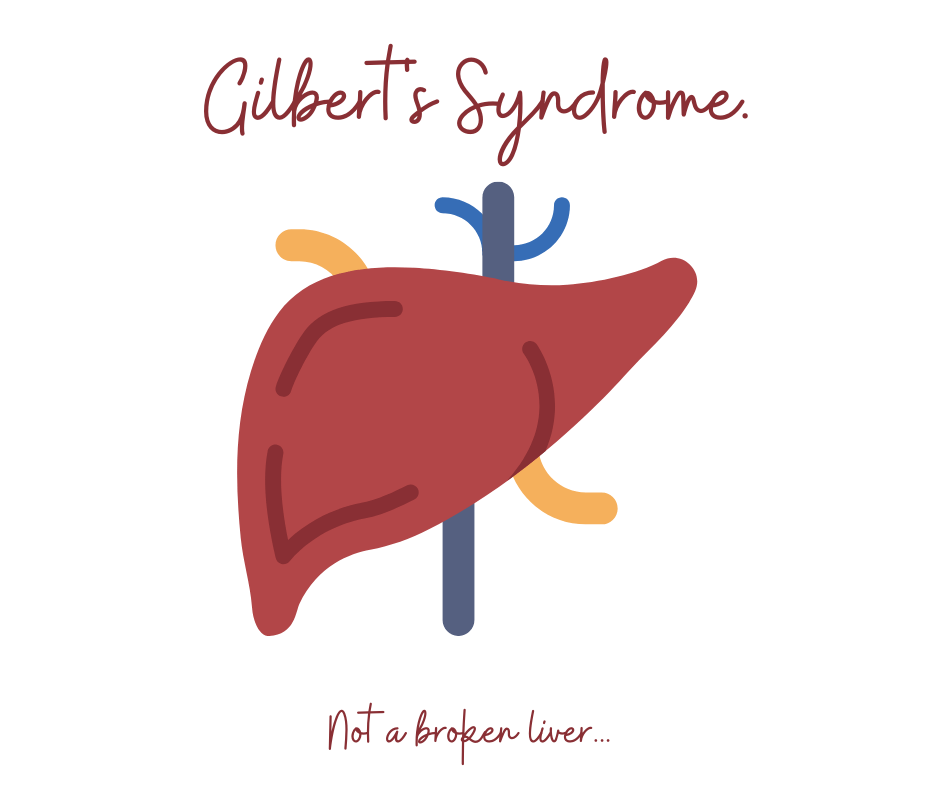*This post is written from our personal perspective of Gilbert’s syndrome and is not medical advice. Please do seek qualified and professional support if you think you have a liver condition or Gilbert’s Syndrome*
Shortly after the husband and I got married, when we were on honeymoon in South Africa in fact, he had a rather strange health episode. He woke up one morning looking a little yellow in his eyes and on the skin on his face. He also didn’t feel well, he was very tired and felt nauseous. I was rather alarmed because yellow = jaundice and as a student nurse at the time, I knew that wasn’t normal. He refused to seek medical help and told me he just needed to eat simple food, drink a lot of water and not have any alcohol for a few days and he would be better. I wasn’t happy but I went along with him, and he was right, in a few days he was better. We have had a few of these episodes since then but he has always recovered and it’s a bit of a joke. They are usually triggered by illness or digestive upset.
Looking back, last year, during the time he was being treated for myocarditis we were told that one of his blood results showed an abnormal but not alarming bilirubin count. He’s had this before too, but because it wasn’t too high and he seemed well we have not looked into it.
Recently, however, despite having put it to the back of my mind, we had a bad episode. One which wasn’t mild and one that took him a LOT longer to get “over”. After ten days we decided we needed to see what was going on, and we got some medical helped. We were both getting worried.
Liver issues are pretty serious, and when someone feels unwell and has liver symptoms the health professionals tend to act quickly. Our liver is the filter of the body, and if it’s not working then you can get pretty ill fairly quickly. The obvious things they were looking for were liver disease, or liver cancer. Given that he deosn’t drink a lot of alcohol and doesn’t take regular liver damaging medication, they would look for other issues. A rather tense few days wait as we tried not to Google too much. I did however do some research as some of his sumpoms were not atypical of liver disease.
A series of blood tests and some more reading, a chat with his family and a long chat with our doctor, and we are on the road to an answer to why he has these “yellow episodes” and it’s called Gilbert’s syndrome.

Gilbert’s Syndrome is a condition in which you have higher than normal amounts of bilirubin in your blood.
The medical name for this is ‘unconjugated hyperbilirubinemia’. It is also sometimes called familial nonhaemolytic bilirubinaemia or constitutional hepatic dysfunction.
It doesn’t mean you have a broken or failing liver. In fact, your liver, when checked and tested, should be functioning totally normally with no issues, and most of the time, you don’t know you have something “wrong”, but your bilirubin count may be higher than the normal range, particularly if you have been unwell or had an episode of the syndrome.
CGS was first identified by the French doctors Nicolas Augustin Gilbert (after whom it is named) and Pierre Lereboullet in 1900. They described a syndrome of benign, periodic but chronic jaundice occurring without any other symptoms of liver disease. Today, GS is relatively common. It is thought to affect about one person in 20 or about 4% of the population. Some estimates are higher. It affects both males and females. GS is thought to be hereditary, meaning that it is caused by a gene that runs in your family.
There are some long term implications, but they are not life-threatening, or medically urgent. benign means it’s not doing any harm, which is good news, and you want to hear that when you have experienced what can seem like some sinister liver issues.
For us, it has been a bit of a lightbulb moment. We now know what the weird “yellow” episodes he has had all his life, and why they happen. We also know what might be triggering them, and hopefully how to avoid them.
We will be sharing more on this odd syndrome and some lifestyle changes around it and what it means for his health, how we eat and some long term changes.
For now, we know his liver isn’t broken or breaking, and that’s a huge relief.
If you would like more information on Gilbert’s Syndrome, you can check out the British Liver Trust which has a lot of helpful facts and medical details which might be helpful.